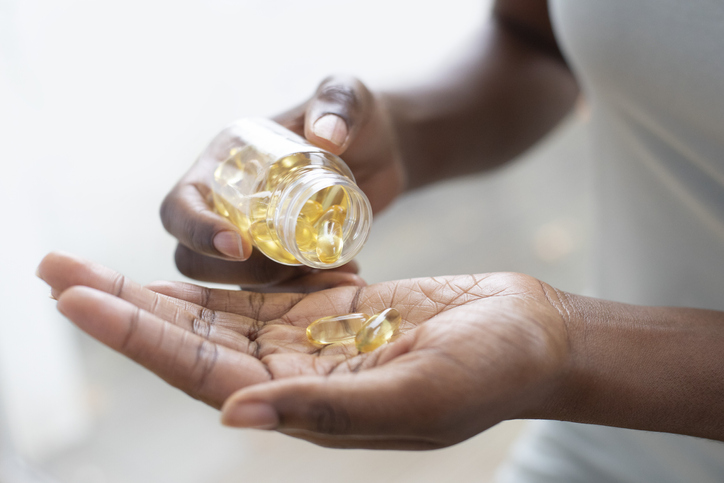Black Women with Vitamin D Insufficiency More Likely to Test Positive for COVID-19.

Black American Women with Vitamin D Insufficiency More Likely to Test Positive for COVID-19
A new study found that Black women with deficient levels of vitamin D had a 69 percent increased risk of COVID-19 infection than women with sufficient vitamin D levels.
Can vitamin D protect Black women from COVID-19? According to research led by Boston University’s Slone Epidemiology Center, the answer may be yes. In a recent study of Black American women, low levels of vitamin D appeared to be related to increased incidence of COVID-19 infection.
Researchers assessed levels of vitamin D (deficient, insufficient and sufficient) among women who had been tested for COVID-19 using data from the Black Women’s Health Study (BWHS), a prospective cohort study established in 1995, when 59,000 black women ages 21 through 69 years enrolled by completing health questionnaires.
These findings appear online in the journal PLOS ONE.
The study estimated that Black American women with deficient levels of vitamin D had a 69 percent greater risk of COVID-19 infection than women with sufficient vitamin D levels. The association between low serum vitamin D and higher risk of infection was strongest among women with obesity, an important finding given the higher prevalence of obesity among Black women compared to other American women.
“Nearly one out of four people have vitamin D blood levels that are too low or inadequate for bone and overall health,” says lead author Yvette Cozier, associate professor of epidemiology at the School of Public Health and an investigator on the BWHS at the Slone Epidemiology Center. “Our study provides another reason why adequate levels of vitamin D are important – the possibility of lowering risk of COVID-19 infection.”
A few other studies have reported inverse associations between vitamin D and COVID-19 infection, but these were largely in Whites or did not provide estimates according to either race or BMI. As the first published analysis on the relation of serum vitamin D and COVID-19 infection in Black women, these findings may help to explain why Black women are overrepresented among COVID-19 cases, as this population commonly experiences vitamin D insufficiency. The study also shows that a number of important factors related to risk of COVID-19 infection, including number of people in the household, years of education and residential neighborhood socioeconomic status, did not account for the association.
It is widely known that vitamin D deficiency and obesity are associated with risk of chronic diseases like osteoporosis, cancer, and cardiovascular disease. These findings add COVID-19 to that list.
Clinical trials now are underway to determine whether vitamin D helps reduce the risk of COVID-19 or helps reduce symptoms in people who have COVID-19, but results are not yet available.
Further research is needed to confirm these findings and determine the optimal level of vitamin D for a beneficial effect against COVID-19.